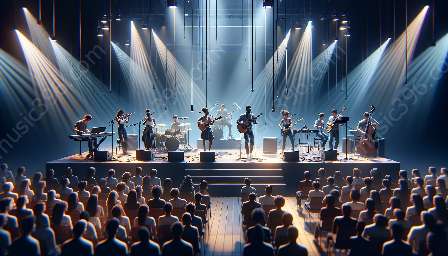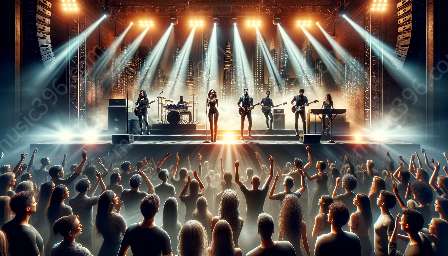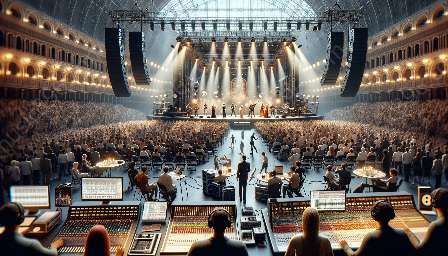Performing rock and pop music in front of a large audience can have profound psychological effects on musicians. It can impact their confidence, stress levels, and overall well-being in both positive and negative ways.
This topic cluster will delve into the various aspects of the psychological effects of music performance, including the influence of audience size, the physiological response to the experience, and the long-term effects on mental health.
Impact on Confidence
One of the most striking psychological effects of performing rock and pop music in front of a large audience is the impact on the musician's confidence. The adrenaline rush and sense of accomplishment from performing in front of a crowd can significantly boost self-assurance and self-esteem. This experience can help musicians overcome stage fright and build resilience in facing challenging situations. On the other hand, the pressure to deliver a flawless performance in front of a large audience can lead to increased anxiety and self-doubt, affecting the musician's confidence negatively.
Stress and Anxiety
The psychological effects of performing in front of a large audience also include stress and anxiety. While some musicians thrive on the thrill of performing for a big crowd, others may experience high levels of stress and anxiety. The fear of judgment and the pressure to meet audience expectations can cause performance anxiety, leading to physical symptoms such as racing heart, trembling, and sweating. Learning to manage these psychological effects is crucial for musicians to maintain their well-being and continue performing at their best.
Emotional Connection
Performing rock and pop music in front of a large audience can create a powerful emotional connection between the musician and the listeners. The energy and emotional feedback from the crowd can induce feelings of euphoria, validation, and connection, enhancing the overall experience for the performer. However, negative reactions or lack of response from the audience can also impact the musician's emotional state, leading to feelings of disappointment or rejection.
Physiological Response
The physiological response to performing in front of a large audience is another crucial aspect of the psychological effects. The release of adrenaline and endorphins during a performance can result in heightened sensory perception, increased heart rate, and a rush of energy. These physical responses can contribute to the overall psychological experience and the emotional intensity of the performance. At the same time, the physical demands of a live performance can also lead to fatigue and physical exhaustion, impacting the musician's psychological well-being.
Long-Term Effects
Exploring the long-term psychological effects of performing rock and pop music in front of large audiences is essential for understanding the impact on mental health. Continuous exposure to the pressures and rewards of live performance can contribute to the development of coping mechanisms, resilience, and increased self-awareness. However, it can also lead to burnout, performance-related anxiety disorders, and challenges in maintaining a healthy work-life balance.
Conclusion
Performing rock and pop music in front of a large audience can have multifaceted psychological effects on musicians, influencing their confidence, stress levels, emotional well-being, and long-term mental health. Understanding these effects is crucial for musicians to navigate their performance experiences and prioritize their psychological well-being.















































